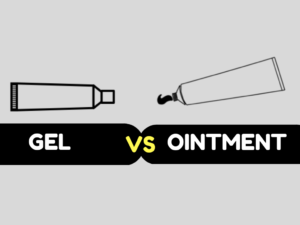Difference between Cream and Ointment
Lorem ipsum dolor sit amet, consectetur adipiscing elit. Nullam eu tellus id velit tristique blandit sed ut lacus. Fusce malesuada mauris augue, id efficitur nisi ultrices sed. Ut tempus orci turpis, vel tempor nunc venenatis in. Aenean molestie purus mauris, non tristique velit vulputate in. Phasellus in risus eget nulla pellentesque aliquam. Cras varius tellus felis, eget mollis enim dignissim non.
What is Cream?
Cream is a topical pharmaceutical preparation that is made by combining oil and water. It is semi-solid in nature and has a smooth texture. Creams are typically used for external application to the skin to deliver medication or to moisturize and protect the skin.
Examples of Cream:
1. Hydrocortisone Cream
2. Retin-A Cream
3. Eucerin Cream
4. Nivea Cream
5. Polysporin Cream
Uses of Cream:
– Creams are commonly used to treat various skin conditions like eczema, psoriasis, and rashes.
– They provide moisturization and hydration to the skin.
– Creams are used for cosmetic purposes like reducing wrinkles and promoting smooth skin.
– Some creams can be used to relieve itching and irritation.
– They are also used as a base for delivering medication to the skin.
What is Ointment?
Ointment is a semi-solid, greasy substance that is used for external application to the skin or mucous membranes. Unlike creams, ointments do not contain water and are composed mainly of oils and waxes. They have a thick consistency and remain on the skin for a longer duration.
Examples of Ointment:
1. Vaseline Ointment
2. Neosporin Ointment
3. Bacitracin Ointment
4. Eucerin Ointment
5. Aquaphor Healing Ointment
Uses of Ointment:
– Ointments are commonly used to treat skin conditions like burns, cuts, and wounds.
– They act as a protective barrier on the skin.
– Ointments are effective in providing relief from dry and cracked skin.
– Some ointments are used for treating eye infections.
– They can also be used for topical drug delivery.
Differences between Cream and Ointment:
| Difference Area | Cream | Ointment |
|---|---|---|
| Composition | Contains oil and water | Contains mainly oils and waxes |
| Consistency | Semi-solid | Thicker and greasier |
| Absorption | Quickly absorbed by the skin | Absorbed slowly by the skin |
| Dosage Forms | Tubes, jars, pumps | Small tubes, jars |
| Stability | Less stable | More stable |
| Duration of Action | Short duration | Long duration |
| Messiness | Less messy | More messy |
| Spreadability | Spreads easily | Does not spread easily |
| Moisturizing | Provides moderate moisturization | Provides intense moisturization |
| Usage | Commonly used for cosmetic purposes and mild skin conditions | Commonly used for severe skin conditions and as a protective barrier |
Conclusion:
In conclusion, creams and ointments differ in their composition, consistency, absorption, dosage forms, stability, duration of action, messiness, spreadability, moisturizing properties, and usage. Creams are water-based, semi-solid formulations used for moisturization and delivering medication to the skin. On the other hand, ointments are oil-based, greasy substances used for skin protection and treating severe skin conditions.
People Also Ask:
1. What is the main difference between cream and ointment?
The main difference between cream and ointment lies in their composition and consistency. Creams contain oil and water, whereas ointments are mainly composed of oils and waxes.
2. Which is more effective, cream or ointment?
The efficacy of creams and ointments depends on the specific condition being treated. Ointments are typically more effective for conditions that require a longer duration of action and a thicker barrier.
3. Can cream and ointment be used interchangeably?
Creams and ointments cannot be used interchangeably without consulting a healthcare professional. The choice between the two depends on the specific condition, patient’s preference, and the desired effect.
4. Are creams easier to apply compared to ointments?
Yes, creams are generally easier to apply due to their lighter consistency and better spreadability. They are suitable for use on larger areas of the skin.
5. Can creams and ointments be used on the face?
Yes, both creams and ointments can be used on the face. However, it is important to choose the appropriate formulation based on the specific skin condition and the person’s preference.


